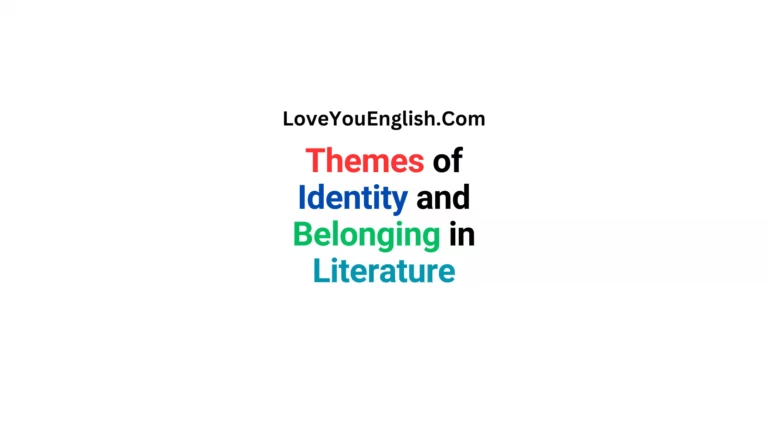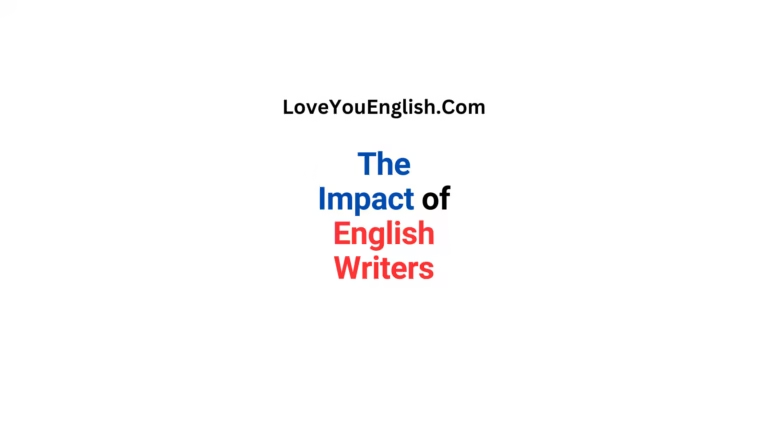English Literature in the Digital Age
Sharing is caring!
In the last few decades, the world has changed rapidly due to technological advancements. The internet, social media, e-books, and other digital tools have reshaped many aspects of life, including the world of English literature. Writers, readers, and publishers all feel this digital shift’s effects.
But how has technology influenced English literature?
What are the current trends?
How have innovations in the digital world made literature more accessible, creative, and diverse?
We will explore these questions by looking at the role of digital tools in modern literature.
The Rise of E-books and Digital Publishing
One of the biggest changes in the world of literature has been the introduction of e-books. Before the internet, reading was mostly done using printed books. But today, readers can easily download books directly to their devices, like smartphones, tablets, or e-readers. This has made literature more accessible to people around the world.
E-books allow readers to carry thousands of books in their pockets. People can read on the go, whether they are traveling or just waiting for a bus. Moreover, e-books are often cheaper than printed versions, making them an affordable choice for many readers.
For writers, digital publishing has opened up new doors. Writers no longer need to rely on traditional publishers to share their work. They can publish their books on platforms like Amazon Kindle Direct Publishing, which allows anyone to become an author. This has given rise to self-publishing, where authors can share their books with the world without going through the traditional publishing process.
The Influence of Social Media on Literature
Social media has become an important part of our daily lives. Websites like Twitter, Instagram, and Facebook allow people to share their thoughts, ideas, and experiences instantly. This has also affected how literature is created, shared, and consumed.
On Twitter, writers can share short, creative pieces of writing in a tweet. Some writers even share their work as a series of tweets, telling a story in small, digestible chunks. This trend is often called “tweet fiction” or “microfiction.” It allows writers to experiment with storytelling in new ways and connect with a large audience instantly.
Instagram is another platform that has seen a rise in “visual storytelling.” Many writers use Instagram to share their poetry or short stories, often paired with beautiful images. These posts are easy to read and are designed to catch the eye of users who are scrolling quickly through their feeds. Social media has made it easier for writers to find their audience and build a community of readers who share similar interests.
The Emergence of Digital Literature Forms
The digital age has also given birth to new forms of literature. One of the most exciting trends is “interactive fiction.” Interactive fiction allows readers to make choices that affect the outcome of the story. This type of literature is often seen in video games, where players can make decisions that change the course of the story. However, interactive fiction is also being explored in traditional writing.
Writers are experimenting with creating stories that allow the reader to decide what happens next. These types of stories can be published in various formats, from e-books to websites. The digital nature of interactive fiction allows writers to create dynamic stories that offer readers a unique experience each time they read them.
Another new trend is the rise of “hypertext fiction.” Hypertext fiction is a type of writing where readers can click on links within the text to jump to different parts of the story. This type of literature allows for non-linear storytelling, where the reader is free to explore the story in any order they choose. Hypertext fiction challenges the traditional idea of a linear narrative and encourages readers to engage with the text in a more active way.
The Role of Online Communities in Shaping Literature
The internet has also created online communities where people can share their thoughts and ideas about literature. Websites like Goodreads allow readers to rate and review books, helping others decide what to read next. These reviews play an important role in the success of many books today. If a book receives good reviews, it is more likely to be noticed by others and gain popularity.
Online forums and discussion groups also give readers a space to talk about books with others. Websites like Reddit have created communities where people can discuss literature, share recommendations, and even talk directly with authors. This has made it easier for readers to find books they enjoy and connect with other people who share their interests.
For writers, these online communities provide valuable feedback. Writers can share their work in online writing groups and receive comments from readers. These comments help authors improve their writing and understand what their audience wants. This process of engaging with readers is helping to shape literature in new ways.
Digital Platforms for Literary Education
Education in literature has also benefited from the digital age. Today, students can access a wide range of online resources to help them study English literature. Websites, podcasts, and online courses offer students the chance to learn more about authors, genres, and literary techniques.
Online learning platforms like Coursera and edX offer free and paid courses on literature. Students can learn about the works of famous authors like William Shakespeare, Jane Austen, or Charles Dickens, all from the comfort of their own homes. These platforms allow students to study literature in a more flexible and personalized way.
YouTube has also become a valuable resource for literature education. Many educators create videos explaining important concepts in literature, from plot structure to literary analysis. These videos make learning more engaging and accessible to students around the world.
The Impact of Technology on Writing Styles
Technology has influenced the way writers create and share their work. Many authors now use digital tools like word processors, grammar checkers, and writing apps to improve their writing. These tools help writers streamline their process and make their work more polished.
Some writers are also using technology to create new forms of writing. For example, “collaborative writing” allows multiple authors to work on the same piece of writing at the same time. This is made possible by cloud-based tools like Google Docs, which allow writers to share and edit documents in real-time.
Writers are also using technology to experiment with different types of content. For example, some authors combine text with multimedia elements, such as videos, images, and audio. This type of “multimodal” writing allows authors to express themselves in new and creative ways.
The Future of English Literature in the Digital Age
As we look to the future, it is clear that technology will continue to shape English literature. E-books, social media, and digital publishing have already had a significant impact, but there are many more innovations on the horizon.
One area of potential growth is artificial intelligence (AI) in literature. AI has already been used to create poetry, short stories, and even novels. While AI-generated writing is still in its early stages, it has the potential to change the way stories are created and experienced. For example, AI could be used to create personalized stories that adapt to each reader’s preferences.
Another exciting development is the rise of virtual and augmented reality (VR/AR) in literature. VR and AR could allow readers to experience stories in a completely immersive way. Imagine being able to step into a novel and explore the world of the story as if you were a character in it. While this is still a distant possibility, it is something that could change the future of storytelling.
Conclusion
The digital age has transformed English literature in many ways. From e-books and self-publishing to interactive fiction and social media, technology has opened up new possibilities for writers and readers. The internet has made literature more accessible, allowing people around the world to connect with books and authors in ways that were not possible before. As technology continues to evolve, we can expect even more innovations in the world of literature. These changes will continue to shape how stories are told, read, and experienced in the years to come.
In the end, technology has not only changed the way we read and write but has also made literature more inclusive and diverse. It has brought new voices to the forefront and made it easier for anyone to share their story with the world. This is an exciting time for literature, and the digital age promises even more exciting possibilities for the future.
Read more:
- English Literature in the Digital Age
- 10 Underrated Authors in English Literature
- Exploring Feminist Themes in Modern English Literature
- Famous Poets of English Literature and Their Masterpieces
- The Role of Shakespeare in Shaping English Literature
- Exploring Themes of Love and Loss in English Literature
- The Role of Humor in Shakespeare’s Comedies
- The Concept of Utopia in English Literature
- How to Approach Literary Criticism
- Women Writers in English Literature
Sharing is caring!








